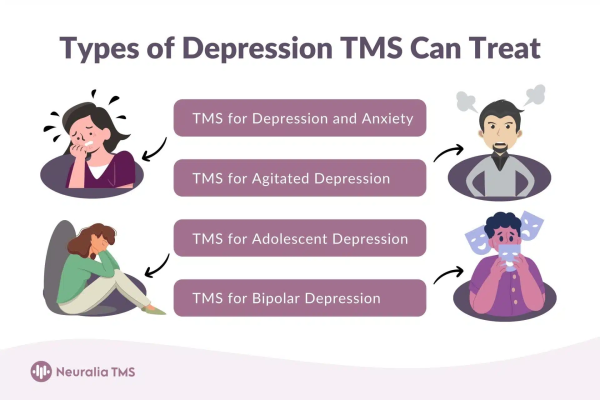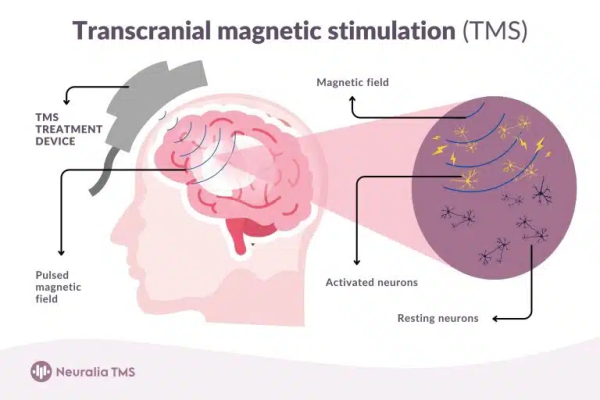Australia, 20th Dec 2024, – Neuralia TMS, a mental health clinic specialising in advanced therapies, is addressing the growing need for alternative mental health treatments in Western Australia. By offering Transcranial Magnetic Stimulation (TMS), Neuralia TMS contributes to the development of non-invasive, drug-free solutions for conditions such as depression, anxiety, obsessive-compulsive disorder (OCD), and post-traumatic stress disorder (PTSD).

TMS therapy utilises magnetic fields to stimulate nerve cells in specific regions of the brain. This technique has gained recognition as a treatment option for individuals who have not experienced success with conventional approaches. Neuralia TMS also integrates transcranial Direct Current Stimulation (tDCS) and pharmacogenetic testing, promoting a personalised and scientific approach to mental health care.
Dr. Shanek Wick, Medical Director of Neuralia TMS, emphasised the importance of providing access to advanced mental health treatments in Perth. “Mental health conditions like depression and anxiety continue to affect countless individuals, often in ways that standard treatments cannot fully address. TMS therapy offers a scientifically validated option for treatment-resistant conditions,” said Dr. Wick.
Mental health challenges are an increasing concern across Australia, with reports indicating a rise in the prevalence of depression and anxiety. Neuralia TMS’s evidence-based solutions respond to this need by offering therapeutic options grounded in scientific research. Incorporating pharmacogenetic testing into treatment plans enables clinicians to tailor therapies, considering the genetic profiles of patients and improving the likelihood of effective outcomes.
The availability of transcranial Direct Current Stimulation (tDCS) further underscores the clinic’s commitment to diverse therapeutic options. This low-intensity brain stimulation technique complements other approaches, addressing symptoms of various mental health conditions. Neuralia TMS uses multiple methods to ensure a well-rounded approach to patient care.

Located in Perth, Neuralia TMS focuses on addressing the mental health needs of individuals across the region. The clinic’s team works closely with patients to understand their specific circumstances and develop strategies that align with their goals. This collaborative process highlights the importance of individualised care in achieving meaningful progress in mental health treatment.
Looking ahead, Neuralia TMS is exploring ways to expand its services and outreach to meet increasing demand for advanced therapies. Dr. Shanek Wick spoke on the clinic’s plans for the future, stating, “The field of mental health treatment is rapidly evolving, and Neuralia TMS is committed to staying at the forefront of these advancements. By continuing to invest in research, technology, and patient care, the goal is to make innovative therapies more accessible to those in need across Western Australia and beyond.”
Neuralia TMS is contributing to a shift in how mental health conditions are managed, prioritising innovation and individualisation. By incorporating cutting-edge techniques and focusing on scientific developments, the clinic seeks to make a lasting impact on mental health care in the community it serves.
For further information about TMS depression, please contact Neuralia TMS on 08 6230 3996. Enquiries may also be sent via email to info@neuralia.com.au.
Media Contact
Organization: Neuralia TMS
Contact
Person: Dr Shanek Wick
Website:
https://www.neuraliatms.com.au/
Email:
info@neuralia.com.au
Contact Number: 61862303996
Country:Australia
The post Neuralia TMS Provides Innovative TMS Depression Treatment for Patients in Perth, WA appeared first on
Brand News 24.
It is provided by a third-party content
provider. Brand News 24 makes no
warranties or representations in connection with it.
Disclaimer: The views, suggestions, and opinions expressed here are the sole responsibility of the experts. No Stocks Distinct journalist was involved in the writing and production of this article.

